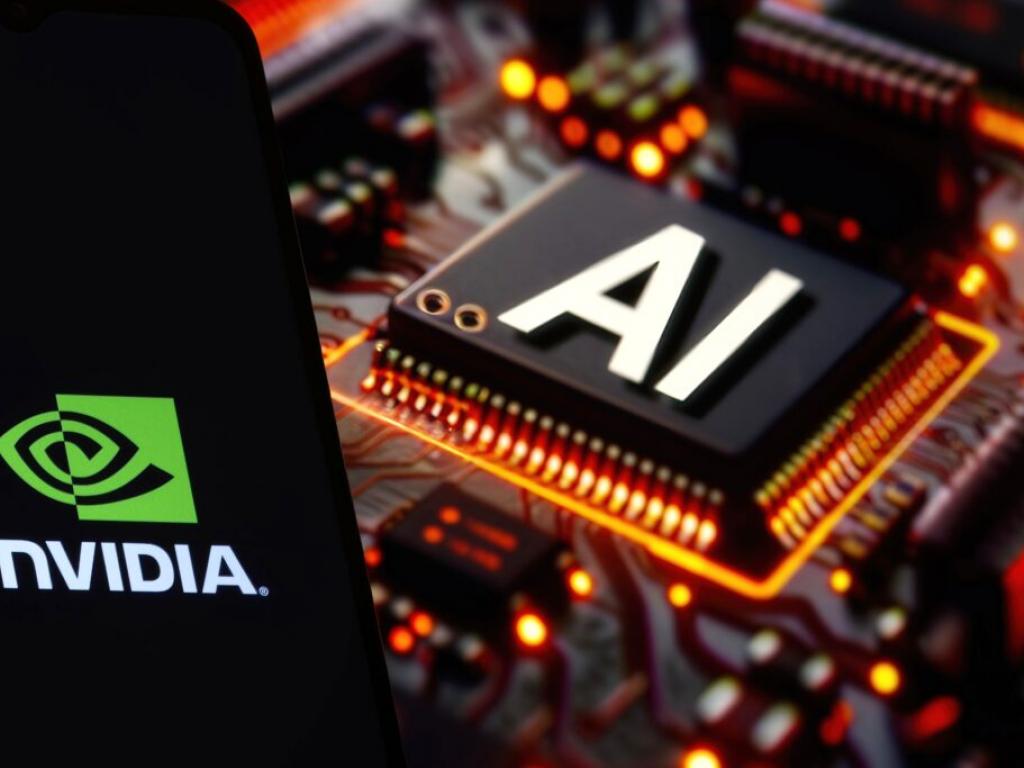Nvidia Effect: Key Suppliers Have Already Sold Out AI Memory Chips For 2025
Author: Anusuya Lahiri | October 30, 2025 09:52am
Nvidia Corp's (NASDAQ:NVDA) insatiable demand for advanced artificial intelligence memory chips has sparked a boom for South Korea's chip giants — propelling SK Hynix to record profits and pushing Samsung Electronics Co, Ltd (OTC:SSNLF) to sell out its next-generation high-bandwidth memory (HBM) supply for 2025.
Fueled by Nvidia's AI momentum, SK Hynix and Samsung are racing to expand high-bandwidth memory production.
Nvidia's surging demand for advanced memory chips helped propel SK Hynix to record profits, as the South Korean chipmaker sold out its entire semiconductor production for next year.
Also Read: Nvidia Becomes The $4.5 Trillion Giant Driving AI's Biggest Deals
As the primary supplier of Nvidia, SK Hynix reported a 62% year-over-year jump in third-quarter operating profit to a record ₩11.4 trillion ($8 billion). Revenue climbed 39% to ₩22.4 trillion, fueled by booming demand from AI data centers.
SK Hynix's capacity for DRAM, NAND, and HBM chips is fully booked through next year, with customers even preordering conventional memory for 2026, the Financial Times reported on Thursday.
The optimism follows SK Hynix's preliminary deal with OpenAI alongside Samsung to supply semiconductors for the ChatGPT maker's massive $500 billion Stargate data center project.
SK Hynix estimated that the project's memory demand exceeds twice the current global HBM capacity and plans to expand production accordingly.
After finalizing HBM supply contracts with key clients for next year, SK Hynix said it will significantly ramp up capital spending and begin shipping its most advanced HBM4 chips in the fourth quarter.
Executives expect supply to remain tight amid accelerating AI investment in the U.S. and China.
SK Hynix currently controls more than half of the global HBM market, far ahead of Samsung and U.S.-based Micron. Its dominance in high-performance AI memory has tripled its share price this year.
Nvidia's growing demand for high-performance AI memory has fueled a major breakthrough for Samsung, which confirmed that it began shipping its latest HBM3E chips to Nvidia in the third quarter and has already sold out next year's supply of next-generation HBM4 chips.
Samsung said its HBM3E chips are now in full-scale mass production and available to all key customers, the Korea Economic Daily reported on Thursday.
After successfully passing Nvidia's qualification tests for its 12-layer HBM3E chip earlier this year, the company began shipping the product to power Nvidia's AI accelerators.
It also sent samples of its upcoming HBM4 chips to clients for testing, with preorders for 2025 already exceeding planned production levels.
Vice President Kim Jae-june said Samsung significantly expanded HBM capacity for 2025 but still faces stronger-than-expected demand.
The company is considering additional investment to meet orders as it prepares for large-scale HBM4 production in 2026.
Driven by the AI boom, Samsung's memory division posted record-high quarterly revenue of ₩26.7 trillion ($19 billion) in the third quarter, boosted by strong sales of HBM, DDR5, GDDR7, and server solid-state drives. The results lifted overall semiconductor profit to ₩7 trillion.
Beyond memory, Samsung's system-on-chip and foundry businesses also strengthened, aided by new contracts with Apple Inc. (NASDAQ:AAPL) for U.S.-based chip manufacturing and Tesla Inc. (NASDAQ:TSLA) for AI processor production.
The company expects AI-driven demand to continue accelerating, with plans to expand 1c DRAM and server memory production while ramping up its 2-nanometer foundry operations in Taylor, Texas, next year.
Meanwhile, Nvidia became the first $5 trillion market cap company with the Big Tech quarterly results, including Meta Platforms (NASDAQ:META), Alphabet Inc (NASDAQ:GOOGL), posing catalysts for the company with their resilient AI spending.
NVDA Price Action: Nvidia shares were down 1.99% at $202.91 at the time of publication on Thursday. The stock is approaching its 52-week high of $212.18, according to Benzinga Pro data.
Read Next:
Image via Shutterstock
Posted In: AAPL GOOGL META NVDA SSNLF TSLA





